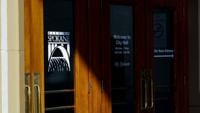(The Center Square) – Seattle officials are weighing new progressive taxes as debate swirls over whether they would help or hurt the city’s already slumping revenue streams.
On April 16, Seattle City Councilmember Alexis Mercedes Rinck announced that she is exploring progressive taxes that would make the city’s wealthiest residents pay more amid an anticipated $241.5 million drop in revenue over the next two years.
The city previously closed a $250 million general fund gap for 2025-2026 using staffing cuts and its payroll tax. However, a recent revenue forecast revealed that revenues over the next two years, not including grants and transfers, are expected to be $241.5 million less than previously thought.
Rinck said the revenue forecast presents a dire challenge requiring immediate action. The action: making wealthy Washingtonians pay more to the city.
“As the Trump-Vance administration and Republicans in Congress continue to slash and burn programs that working families depend on – our city has no choice but to step up,” Rinck said in a statement. “But we can only do that if we ensure the wealthy are paying their fair share.”
Rinck cited University of Washington Economics Professor Jacob Vigdor for why she is exploring ways to tax high-income residents. Vigdor did not respond to The Center Square’s request for comments, but has previously told The Seattle Times columnist Danny Westneat that evidence shows Washington has played a role similar to the Cayman Islands, serving as a “tax haven.”
Vigdor argues the state relies too heavily on consumer taxes and misses revenue from corporate profits and tech giants like Amazon, Meta and Microsoft.
Vigdor also defended Seattle’s payroll tax – that the city’s largest businesses are subject to – saying that despite the tax not reaching revenue estimates in 2024, it still generated $360 million, which is 14% more than the $315 million it raised in 2023 and 42% more than the $253 million it raised in 2022.
The Seattle Metropolitan Chamber of Commerce argues that the city’s progressive payroll tax has fallen short of expectations due to fewer jobs subject to the tax. The tax is driven by three factors: how many people are employed and earning above a certain threshold in Seattle, how much they make, and what the stock market is doing.
“According to the recent forecast, the stock market and wage growth in King County were both strong in 2024 – the only conclusion is that there are fewer jobs subject to the payroll expense tax in Seattle, meaning those jobs moved elsewhere in King County,” Seattle Metropolitan Chamber of Commerce CEO Rachel Smith told The Center Square in an email.
The chamber warns new taxes could slow wage growth, hurt employment, and further reduce city revenue.
“Policymakers should see downward projections of revenues tied to economic activity as a cautionary tale – not as a mandate to further raise the cost of business, which does raise the cost of goods and services, in Seattle,” Smith said.
Since 2013, tax revenue has grown four times the rate of population growth, leading to rapid expansion of city spending. An alternative solution to new progressive taxes, according to the chamber, is cutting nonessential programs and services and creating a more sustainable budget.
Earlier this month, Seattle Mayor Bruce Harrell ordered departments to limit nonessential spending and review budgets for cuts.
The next revenue forecast will come in August, before Harrell submits his 2026 budget proposal. Another forecast will come in October, before final city action on the budget.









